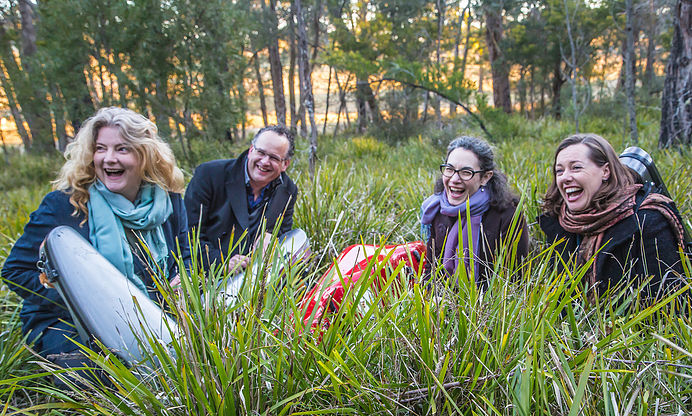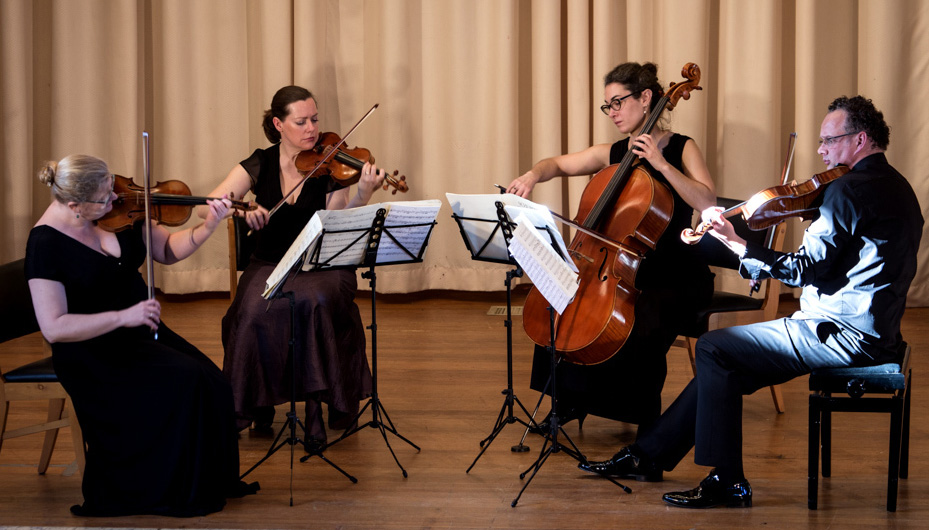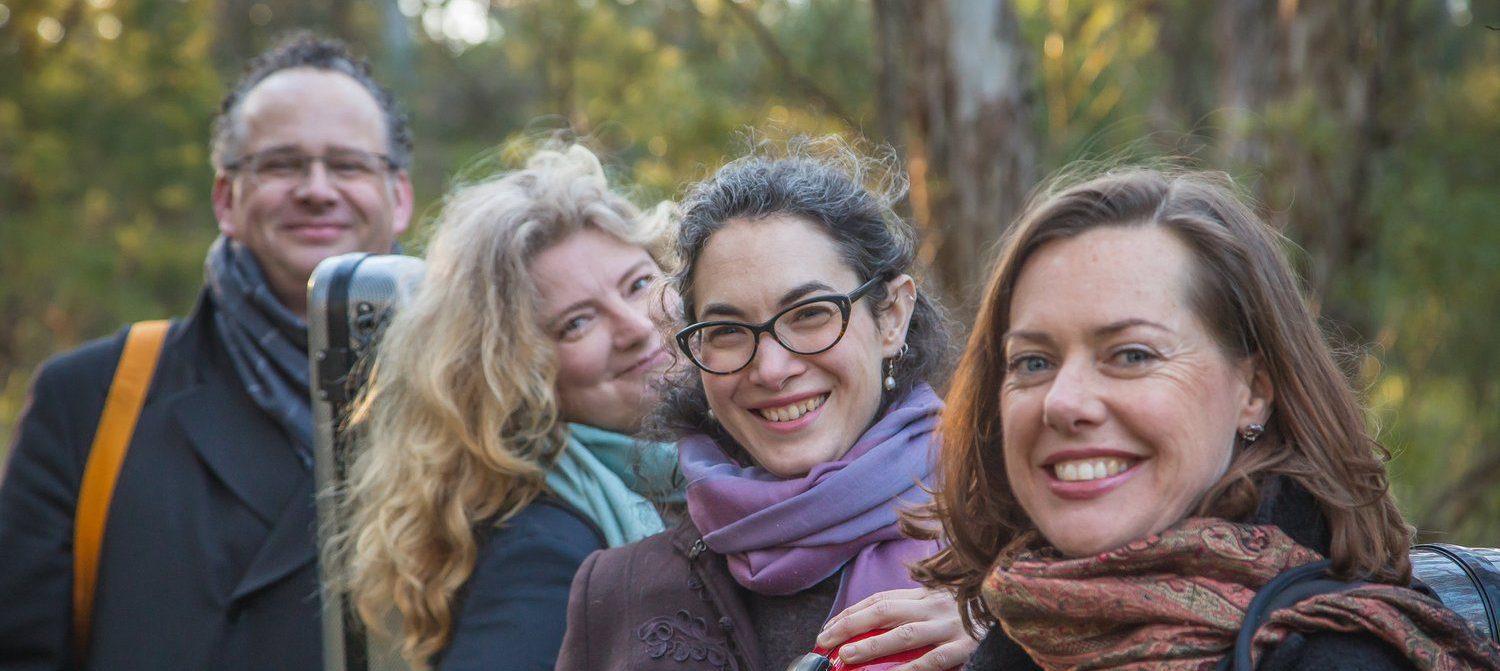Bar piping hot tea, it’s a simply delightful afternoon.
On an unusually sunny Sunday, one may not wish to venture indoors in favour of basking in the glorious winter sunshine (or maybe enjoying a cheeky glass of pinot grigio).
That is, of course, unless you’re venturing into the Independent Theatre in North Sydney to see the impeccable Acacia Quartet perform a number of well-known and new classical pieces with gusto.
The string quartet, comprising of members Lisa Stewart (violin 1), Myee Clohessy (violin 2), Stefan Duwe (viola) and Anna Martin (cello) have been performing together for the last nine years, and it shows. The trust, teamwork, and intuition required to perform complex pieces with complete ease and unity – and without a conductor – is the mark of performers who know (and listen to) each other extremely well.

They opened their performance with the title piece Fratres, by Estonian composer Arvo Pärt. A lot of sliding notes in this piece meant there were one or two moments where I wasn’t sure if the right note was being hit quite in time, but the four quickly found their stride and the music soared. The audience was right up there with them, completely captivated.
Stewart and Duwe then Clohessy the stage, leaving a violin and cello on their lonesome.
“They need to re-tune,” Myee tells the audience, explaining that for the next piece the viola and first violin required their bottom string to be completely different notes. Perhaps that explains the wonky sliding notes at the beginning.
We then heard Time and Fate, (String Quartet, No. 4, Op. 35) by Airat Ichmouratov. A Russian-born, Canadian-based composer, this piece got its Australian debut by Acacia Quartet in Deniliquin, NSW – a town with less than 7,000 residents – of all places.
After interval, we were treated to Mendelssohn’s String Quartet in A Minor, and if you ever want to feel like you haven’t achieved very much, listen to this piece and then learn that ‘Mendelssohn was only 18 when he wrote it’, as Clohessy kindly pointed out to us.
In preparation for their final number, Acacia Quartet state that they are always wanting to perform pieces that are ‘not just well-known, but also champion lesser-known, more local composers’.
The final piece comes, surprisingly, from a man in the audience – Australian composer Lyle Chan. He gifts the group a piece each year to perform, and this year the piece Virelai was a snappy 3-minute burst – a far cry from the 90-minute pieces they’ve played in the past.
When asked about his work, Chan explains that he used a single base chord and tried to find as many ways as he could to carry that chord without the audience getting bored or the piece becoming monotonous.
“Three minutes is about as long as you can do that for,” he laughed.
While ‘classical music’ and ‘fun’ are not often used in the same sentence for many people, that’s exactly what the performance was: fun. Stewart in particular looks like she is having the absolute time of her life when she is performing; moving with the music and really capturing the soaring energy of the four pieces performed. Clohessy was a gracious MC, explaining each piece, and the quartet created a cacophony of sound that seemed unbelievable for just four instruments.
My main gripe with the afternoon, albeit not performance-related, is that the 20-minute interval ended up being closer to 10, and as you can’t take food or drink into the venue, we had to scull our piping hot peppermint tea right after we bought it. Take it from me, a scorched tongue isn’t a great accompaniment to Mendelssohn.
Similarly, from an aesthetic perspective, the use of framed flimsy music stands jarred with the highly professional sounds we were hearing. We were listening to professional, beautifully-performed music, so it may have been worthwhile to use sturdy stands that make it look less like a high school music performance.

Despite these very small complaints, however, the afternoon and the music that accompanied it was simply delightful.
